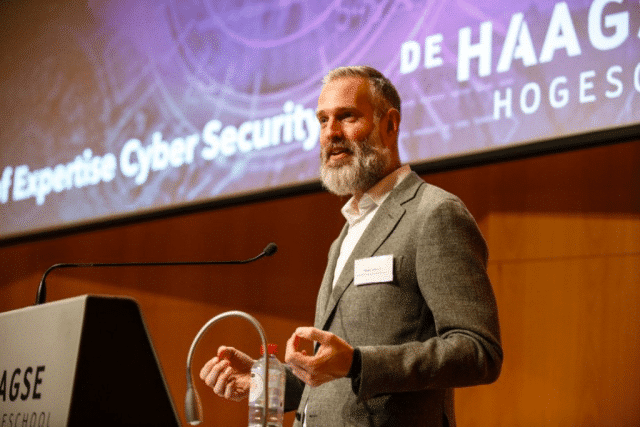Cyber criminals operate close to home
The beginning of this month is the official start of a groundbreaking 5-year research program aimed at understanding the complex pathways to cybercrime. With cyber threats escalating globally, this initiative seeks to delve into the underlying factors driving individuals towards illicit digital activities.
Rutger Leukfeldt, Director of the Centre of Expertise Cyber Security at The Hague University of Applied Sciences, senior researcher at NSCR and professor at Leiden University, is leading the program and has been researching this topic for many years. He already discovered that we are not only dealing with cyberattacks from Russia and China, but that a lot of cyberattacks are also done by networks embedded in the Netherlands or the countries around us like Germany and Belgium.
“We often see that cybercriminals are first victims of cybercrime at a very young age themselves. As a counterattack, they start to search online for what kind of steps they can follow. Unfortunately, anyone can find all the information they need to plan a cyberattack online. The program focuses on this crucial moment. One of the things we will try to implement are early warning signs on these kinds of platforms”, explains Rutger Leukfeldt.

The research program receives partial funding from the European Research Council (ERC). This grant enabled Leukfeldt to set up a research team at NSCR. In addition, THUAS and the Cybercrime Offender Prevention Squad of the National Police in the Netherlands joined the program with their own funding. This collaborative effort brings together a unique team of experts and students specializing in cybersecurity, criminology and behavioural psychology. Adopting a multidisciplinary approach, they aim to unravel the intricate web of motivations, circumstances, and vulnerabilities that underlie cybercriminal behaviour.
The program will encompass a comprehensive range of methodologies, including longitudinal studies, qualitative interviews with offenders, and data analytics, to capture the diverse experiences and trajectories of individuals involved in cybercrime. Moreover, it will collaborate with law enforcement agencies to ensure the relevance and applicability of its findings.
“The Hague deals with cybercrime on a daily basis, just like any other city. Therefore, we encourage initiatives like this research program. In the city, we accommodate a unique and extensive cybersecurity network where innovation, cooperation and knowledge sharing are central. From pioneering public-private partnerships to groundbreaking research collaborations, we take pride in our multifaceted approach towards safeguarding our cybersecurity network wherein knowledge institutions play a crucial role. This research is a great example of a successful collaboration that is formed in The Hague”, says Saida van Kalsbeek, Program Manager Cybersecurity at the Municipality of The Hague.
Learn more about the research program here.














